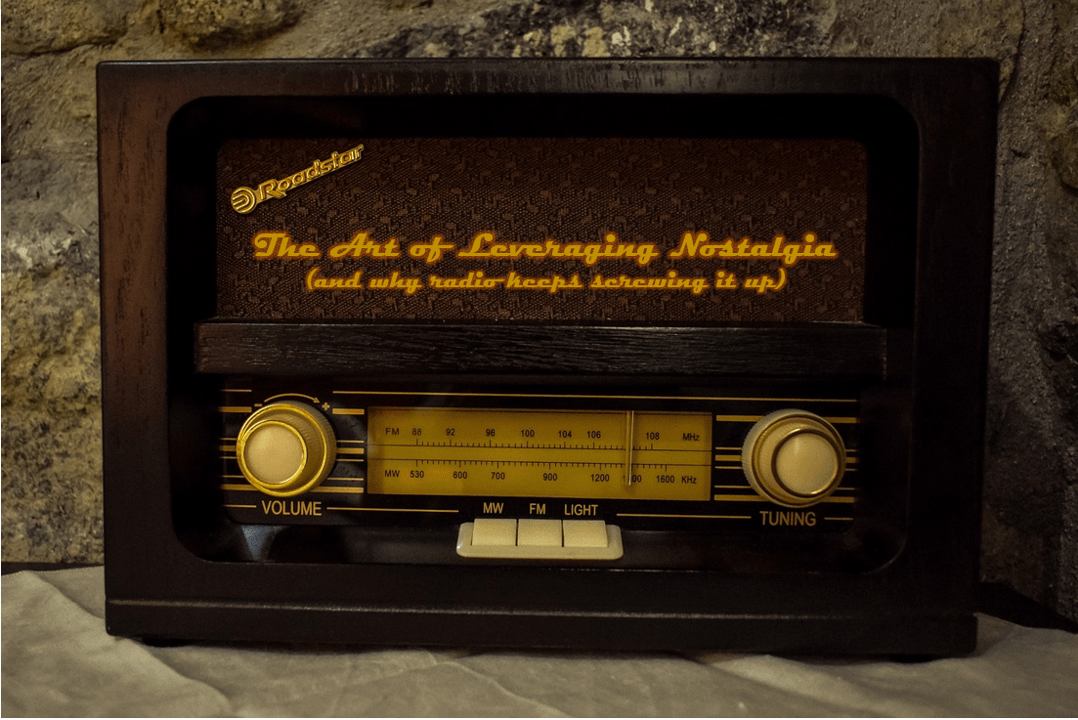
Did you watch The Grammys the other night? (If you did, you were part of a dwindling group of diehards who still enjoy network award shows.)
One of the less obvious aspects of the show was that most of its high points – especially the live performances – were steeped in nostalgia. In fact, the show was soaked in memories, the only device the producers apparently think moved the needle. Interestingly, had they actually promoted the show as a musical time trip into the past, it likely would have garnered better ratings.
Immediately after the show, a team of Washington Post writers ranked these live performances from best to worst. While the Internet loves countdowns as much as we do in radio, the big takeaway from their story had to do with how so many of these standout live renditions were nostalgic blasts from the past.
It may have been telling that Miley Cyrus chided the audience for not knowing her new Grammy-winning song, “Flowers.” As she hissed to the assembled celebrities, “Why you acting like you don’t know this song?” Apparently, many did not.
A look at WaPo’s countdown reveals a steady stream of memories, punctuated by live appearances by Tracy Chapman with Luke Combs (more on that at the end of today’s post), Billy Joel, Joni Mitchell, Annie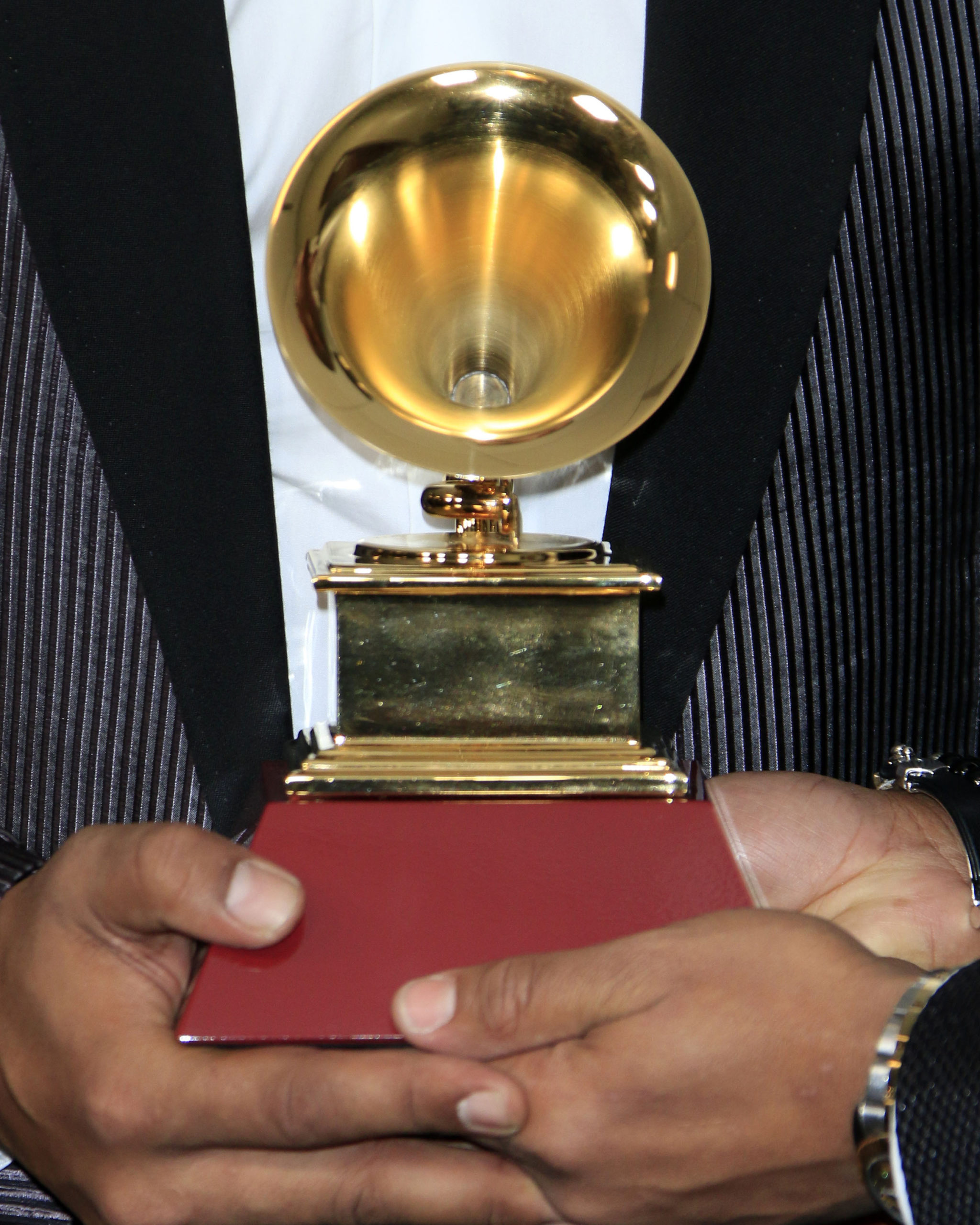 Lennox, a tribute to Tina Turner featuring “Proud Mary” (by Fantasia Barrino), an “In Memoriam” tribute to Bill Withers (by Jon Batiste), another nostalgic nod to Tony Bennett by Stevie Wonder, and of course U2, from Sphere in Las Vegas.
Lennox, a tribute to Tina Turner featuring “Proud Mary” (by Fantasia Barrino), an “In Memoriam” tribute to Bill Withers (by Jon Batiste), another nostalgic nod to Tony Bennett by Stevie Wonder, and of course U2, from Sphere in Las Vegas.
Something worked. The Grammys attracted nearly 17 million viewers – an increase of 34% from the previous year. For the moment, this year’s show stopped the bleeding, perhaps informing the producers what actually draws a big audience and generates social media buzz.
Our collective societal love for nostalgia apparently knows no limits. A recent opinion piece in Inc. by contributing editor Bill Murphy, Jr. makes the point that our collective memory is “a powerful emotional force: a sweet reminder of youth, and a connection to a shared, broader world.”
And he looks at McDonald’s as the perfect example of how to brilliantly lean into the reservoir of our pop culture memories. Whether it’s bringing back the old “Hamburglar,” a McDonald’s character from 1971, or the vintage “Grimace” (who McDonald’s worked into a TikTok trend), America’s classic fast food joint doesn’t miss a nostalgic trick.
And in that way, they continue their appeal to kids, while superserving adults with “hyper relevant” memories. And the emphasis on the past is cleverly supported by McDonald’s social account, like this tweet that ran back during the pandemic:
one day you ordered a Happy Meal for the last time and you didn’t even know it
— McDonald’s (@McDonalds) November 24, 2020
Murphy reminds us of this simple, but effective marketing path, demonstrated brilliantly by McDonald’s:
“Nostalgia leads to emotion. When done right, that emotion can in turn leads to sales. And the key to leveraging it all is emotional intelligence.”
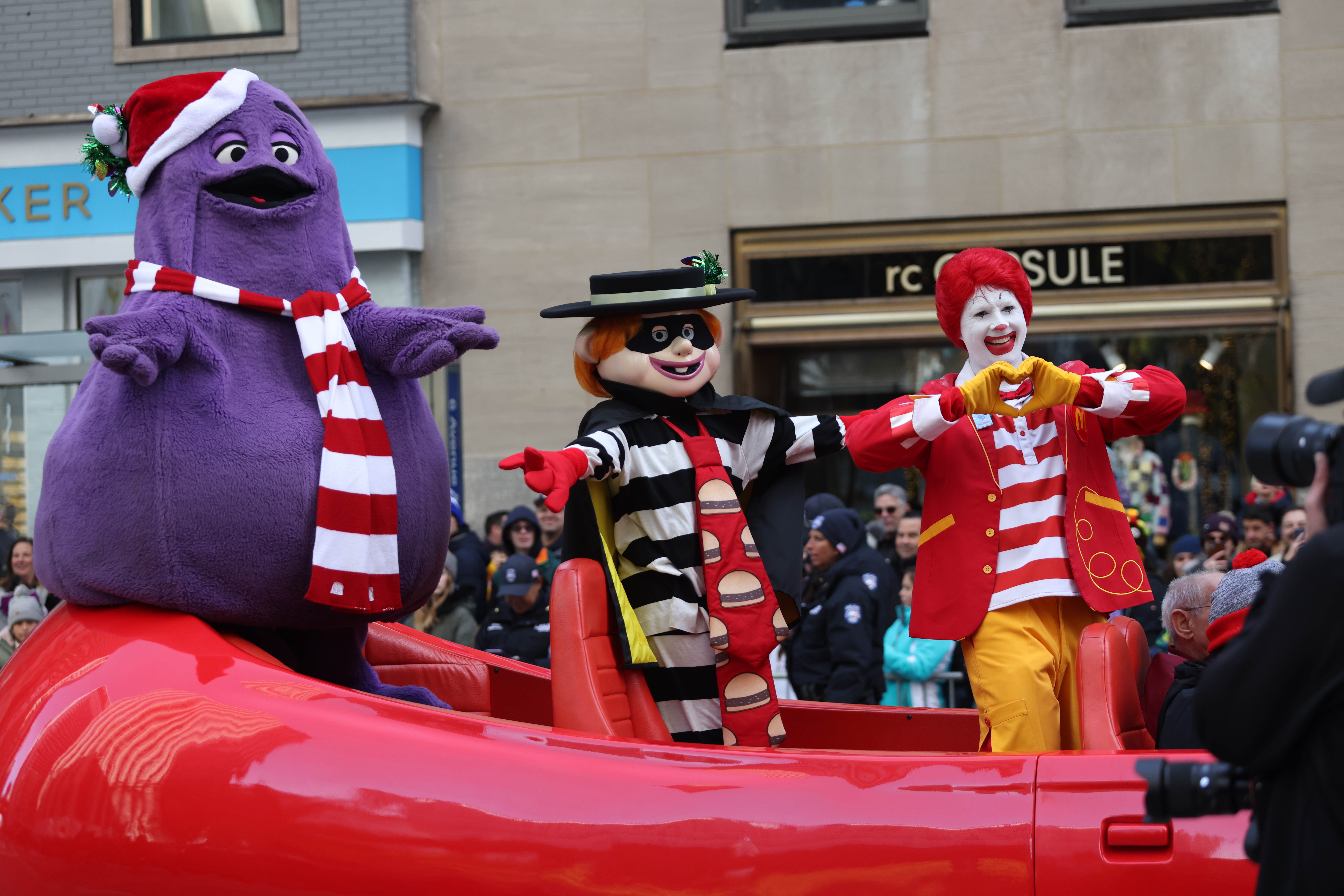
By utilizing the power of memories, McDonald’s continues to sell billions of burgers, while enjoying multigenerational success.
But how does it actually work on millions of brains, tapping into those memories we have in common? In the early days of the Classic Rock format, I began to confront those types of questions in an effort to better understand the full impact of the music, the artist, and the times.
I can’t tell you I figured it all out – especially the scientific parts (not my area of expertise). But I most certainly watched the effect in the ratings, at concerts, and in focus groups where listeners readily told their personal stories – and still do.
So, now we’re learning more about why nostalgia’s pull is so powerful Clay Routledge is VP research and director of the Human Flourishing Lab at the Archbridge Institute in D.C. He wrote the book on nostalgia – literally. “Past Forward: How Nostalgia Can Help You Live a More Meaningful Life” is the title.
In a detailed Business Insider piece, Routledge penned “In defense of nostalgia,” with the fascinating subtitle “Why rewatching ‘Harry Potter’ and ‘Star Wars’ is actually good for you.”
(Maybe we can add “listening to Queen” to the subtitle.)
Routledge points to movies, video games, and Spotify streams (what – no radio?) to make his point that “nostalgia has taken over our culture.” And the healthy aspect of going back in time is that our memories lead to progress, help resolve our bad feelings, while giving us hope.
He says the effect on people – yes, that means radio listeners – is that “humans are mental time travelers” who live here now, but go back in our minds now and again, while we make plans for our future.
Of course, we are living in anxiety-heavy times, so activities like perusing old photo albums, watching a classic movie or TV show, or listening to a favorite album all provide a sense of peace when we get angsty. Interestingly, most people enjoy doing these things repeatedly, whether it’s watching “It’s A Wonderful Life” or listening to “Dark Side of the Moon.” These things never get old.
Coincidentally, my daughter and a friend attended one of those cool performances over the weekend where a live orchestra plays the soundtrack to a classic movie. She watched and listened to the great Detroit Symphony Orchestra play the music from “Harry Potter and the Philosopher’s Stone” released way back in 2001.
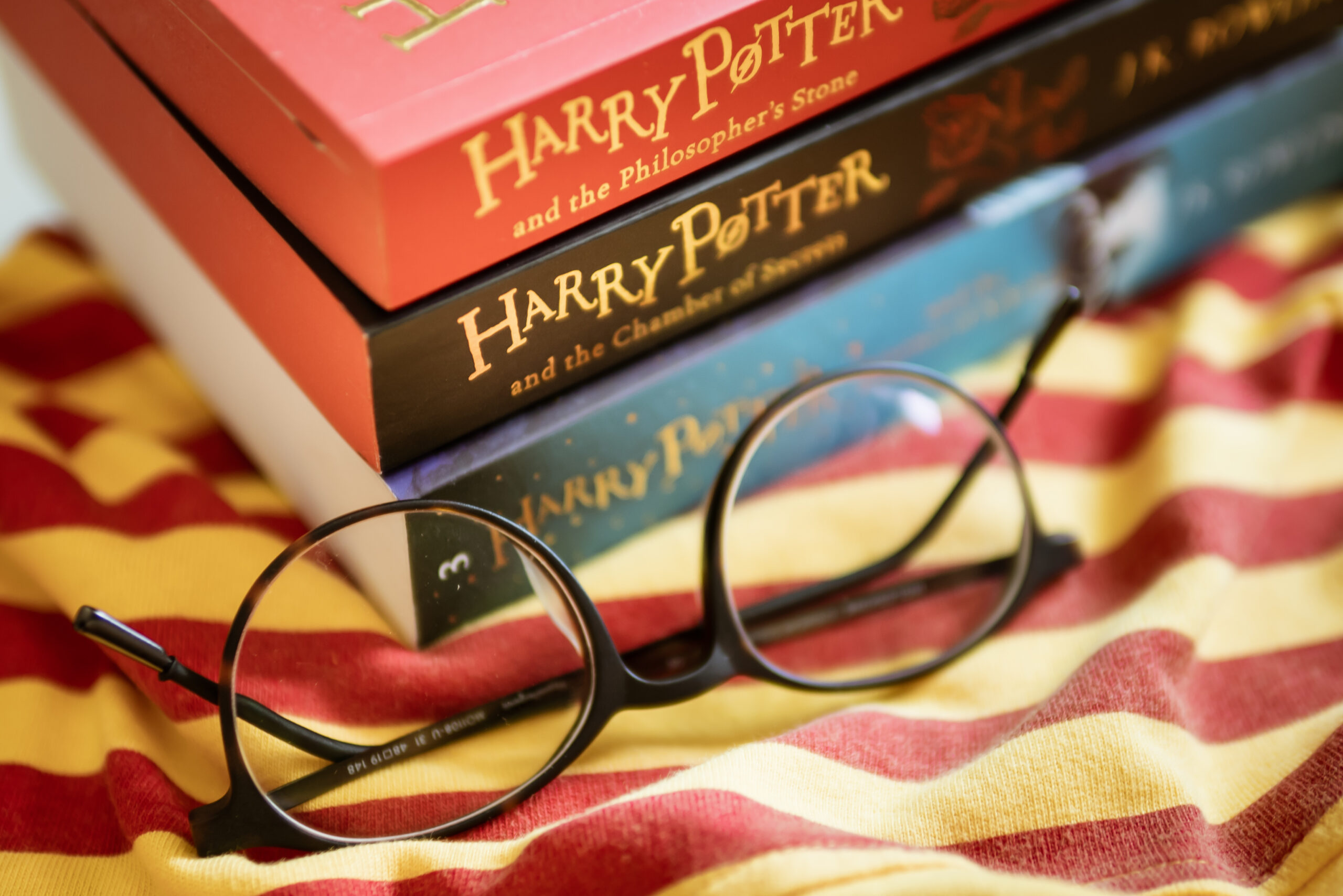 Allie is 35 now so she read those amazing J.K. Rowling books (and saw the subsequent movies) when she was an adolescent. And as she explained to me, the feelings of nostalgia and wonderful memories washed over her while she rewatched the film and listened to DSO make its magic. Those books sparked her reading habit, with her to this day. And it all tracks back to the boy wizard and his round spectacles.
Allie is 35 now so she read those amazing J.K. Rowling books (and saw the subsequent movies) when she was an adolescent. And as she explained to me, the feelings of nostalgia and wonderful memories washed over her while she rewatched the film and listened to DSO make its magic. Those books sparked her reading habit, with her to this day. And it all tracks back to the boy wizard and his round spectacles.
That’s what the research says, too. A new study of Americans (N = 2,049 18+ adults, October 2023) by Routledge’s team at the Archbridge Institute surfaced these findings:
- 84% say their nostalgic memories are a reminder of what’s important to them
- 72% aver they feel a sense of inspiration from past remembrances when they are feeling indecisive
- Nearly 60% contend their yesteryear memories provide guidance when they’re feeling at sea
The infographic below is detailed, but perhaps serves as fodder for staffers, advertisers, and others who just don’t understand why a station that specializes in “gold” has a very different impact on its audience. When you’re looking at a ranker, everyone looks the same:
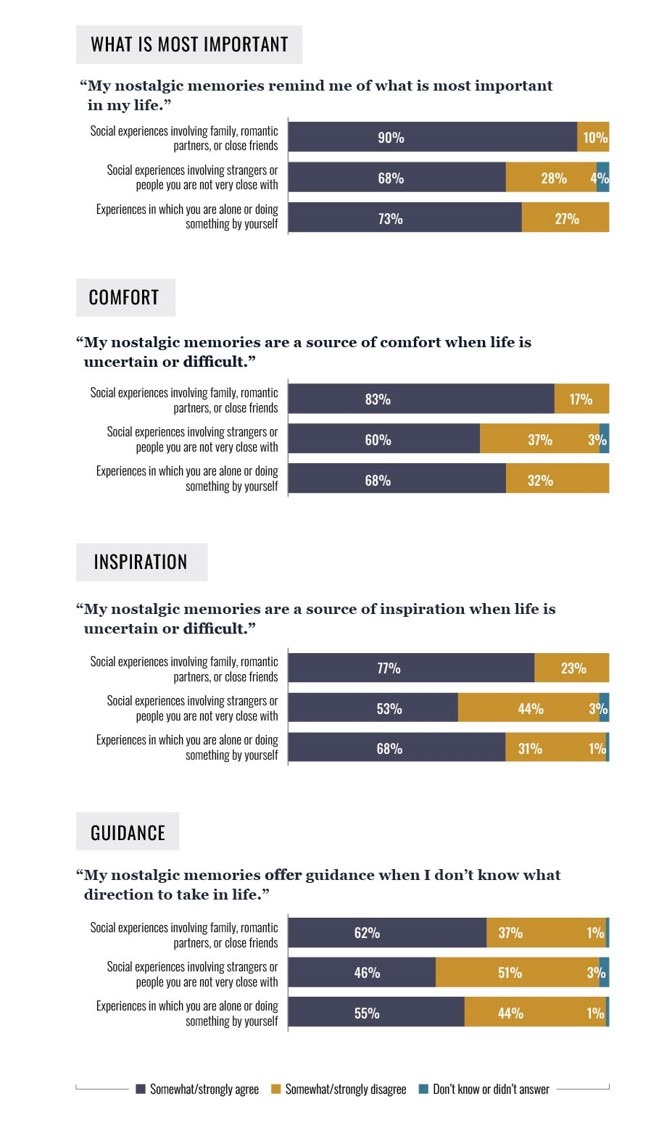
Nostalgia drives success of some of the biggest and best brands. Take sports teams, for example. Retro and throwback jerseys and other merch fly off the shelves and make those e-commerce bells ring. While we enjoy and appreciate present-day uniforms, our memories of past victories, winning seasons, and storied athletes are vivid and often thought of as lucky charms.
A number of years ago, 97Rock in Buffalo created “throwback jerseys” featuring the station’s original logo on the front, and the current version on the back. For Buffalo rockers, the shirts symbolized their time in grade with this brand. Like so many listeners, they can play back the day the station went on the air, the first song it played, and other details that mark moments in time and in their lives. 
Similar to how McDonald’s understands the memory banks of different generations of fans, there’s a powerful force at work here that transcends the mechanics of music testing, music scheduling, call-in contests. When radio stations leverage their native nostalgia, the results are almost always evident. And because our memory banks are organic with lives of their own, it is always possible to rekindle those old flames. Done right, it awakens memories – and generates ratings.
For radio programmers and content creators, it is essential to realize nostalgia isn’t a format or a genre – it is very much a state of mind. You can watch a brand like McDonalds move and groove its way through their tool kit, juxtaposing new products, special discounts and games, as well as those powerful memory banks of ours to forge a smart pathway to sustainable success. Of course, their research and usage metrics provide marketing navigation to ensure they’re headed down the right path.
If you’re running a gold-based station – or it’s something you’re considering – it’s essential to understand all the buttons you can push. It is possible to apply emotional intelligence to your programming if you know the audience, the market, and perhaps have a personality (or two) who can make it all come alive.
It’s how radio can find a way forward by wisely and strategically leveraging the past while standing firm in the present.
The moment at the Grammys that will create the #1 song in Country – and perhaps on the radio – is the duet by Tracy Chapman and Luke Combs of “Fast Car.” Kudos to whoever dreamt this up. It will be one the all-time searing memories of this award show. And it may be one the best examples ever of marrying the past to the present.
Full performance of Fast Car by Tracy Chapman with Luke Combs at the Grammys.
Her smile at the beginning is the best. pic.twitter.com/Eo8aw15Snf
— Yashar Ali 🐘 (@yashar) February 5, 2024
Thanks to Dave Beasing who gets this stuff. – FJ
- Who At Your Station Would The Audience Like To Have A Beer With? - May 20, 2025
- Lessons For Radio From The Recent Google Home Outage - May 19, 2025
- The Rock Hall’s Most Egregious Snub Yet? - May 16, 2025




Great read. Although I wonder if the pandemic screwed nostalgia up as well, at least for a generation. There are as many reads out there about the dangers of nostalgia. And while, that might be just the Eeyores of the world, I wonder how much dopamine we can squeeze out of the past in the near future. We might need a “it’s morning again in America” moment (not necessarily political) to jumpstart that engine before marketers see the damn bursting benefits. Although incrementally it’s probably effective. I love the throwback jerseys. Wish I had thought of that.
Because…nostalgia takes us back to when we were young, driving in our cars, focused on little beyond hope and freedom–before life imposed fear of debt, death, and hitting deer. Those reminders fuel our happy and help keep us emotionally afloat. I saw a spot-on meme yesterday: Two Boomers on a couch, watching the Grammys. Their conversation bubbles each said “Who? Who? Who? Who? Who?” Then, a combined bubble said, “JONI!!!” Their joy and relief was emotionally palpable, though from a single, one-dimensional drawing.
I love the cartoon’s message. Maybe the Grammys are figuring out the people at home watching on their couch are mostly north of 50. It’s a matter of simple programming, right?
The Grammys offered Familiar Favorites:
Wonder. Without the thunder.
Billy Joel. Without losing controel.
Joni. Without the baloni.
CBS/FM Original Softrock. WEEI/FM Boston 1977-1981.
Nice turning of those phrases, Clark, a craft you know so well.
Radio nostalgia reaches back to a time when radio was timely and local. Whether the jocks were the best or not, they were present both in time and place. That’s the element missing on too many radio stations. Even generic references to the past fail to really hit the mark for many listeners. A couple hours of Casey’s Top 40 from decades ago is a nice nostalgic trip to the past, but it doesn’t really meet the needs for relatability and companionship people crave today. Visiting the past is one thing. Wallowing in it is another. How that old song relates to us now is very different than how we related to it then. Work with that and you can create new connections.
Excellent advice, Brian. As you note, it is not just about playing a tight group of titles again and again with drops in between the songs.
Nostalgia is directed at a demographic that radio long ago gave up on.
Strictly speaking, Scott, yes. When the demo ages into the 60’s, radio wants nothing to do with them (odd, given their spending power, their size, and how many new products are directed at them). But as I pointed out with the Harry Potter story, a thirtysmething can feel extremely nostalgic for the 90’s, a decade this Baby Boomer doesn’t care much about. But among Millennials, it’s nostalgia to the 10th power.
Nostalgia is an ingredient in the mix – and it can help, hurt or have no impact on the recipe. Creative people can use it well, conjuring up memories just for the sake of tapping in – resisting the urge to talk about “the good times” or “in my day” or the worst: “music was so much better” which is always bollocks.
I copped the idea for my radio show “One Year at a Time” from Henry Louis Gates on PBS, combined with Bill Kurtis’ Decades. My goal was and is to tell stories, looking for human connections. I deliberately dispute the notion that the show is intended to be for nostalgia but acknowledge that some listeners might find comfort in hearing some songs, while others wonder why they never heard that particular tune or artist. It all leads to discovery – learning, whether about others or ourselves.
At the same time I would like to imagine a younger listener just appreciating the curating I’ve done to put the program together. In one hour that person can get a real feeling for what happened musically.
As you point out so well Fred, jerseys and t-shirts can take on tremendous value to the fans – so make them happy!
There was a local suburban Boston station that played “good time oldies” but they were lazy and never put any passion into the product. Next thing we know they change up the music, the soul is lost, and then they sell to a religious organization. So much lost opportunity – no local history or identity, no connection. I wish the current corporations would just sell and let truly dedicated owners take over. I still believe! (cue the music)
Tai, as you point out, context, curation, and storytelling are what make it all come to life. It’s a way to satisfy the old guard, while also being a welcoming source for new audience. Formats in a box may get you a book or two, but it is the human element that makes a brand sustainable.
One reason: too many people programming library-based stations have zero feel for the history(read: EQUITY) the station’s music has with it’s listeners and instead pull against the reins to update and freshen the station and its image.
No one listens to a gold-based station to hear newer songs that were not a part of the format when it was at its peak. Whether they are 18, 38 or 68, they are there to hear the music that makes them feel good.
Jack, this is an ongoing topic as both sides of the debate make your case. As simple as it sounds, making sure you understand how your audience defines the period and where the limits are goes a long way ot not losing your focus. Sometimes, the pursuit of younger demos can throw a gold-based station off brand.
To build upon some of the previous comments, perhaps the worst thing that can be done is to just recreate the surface qualities of a particular era or genre. It’s important to include a reason why something was (or even still is) important. And that, yes, does require a good amount of curation. The goal shouldn’t be to just foster positive feelings, but to also encourage at least a bit of discovery.
While I’ve mentioned the Portuguese historical/musical drama Os Filhos do Rock before, I just dug up an official archive of the Dias de Rock radio features that promoted the series when it originally ran. (Basically, the actor who played the influential DJ in the series presented them in-character, as if they were an extension of his fictional show.) While I was already familiar with many of the highlighted songs, listening to some of the features themselves has helped me get hooked on one more song (so far)–which I subsequently noticed has received praise from the renowned UK-based (but online) NTS Radio.
https://www.rtp.pt/play/p1374/dias-de-rock
For people outside an era’s sweet spot, there are opportunities to learn about the music through talented hosts and strong curation. Music discovery isn’t just about new stuff. As I’ve heard many people say during the Classic Rock era, “If it’s new to you…” Thanks, Eric.
First time I could sit through the Grammys for years. I wondered what the ratings would be. After all, who still watches television?
Brilliantly stated Fred and Dave.
Appreciate it, Andy.
Pertinent to know:
“The word nostalgia is a learned formation of a Greek compound, consisting of νόστος (nóstos), meaning “homecoming”, a Homeric word, and ἄλγος (álgos), meaning “sorrow” or “despair”.”
So it means a longing for home AND a not being really able to get there. That IS powerful because it IS both sweet AND bitter. It’s why the result is often a tear, as it’s an unrequited desire.
“Emotional intelligence (otherwise known as emotional quotient or EQ) is the ability to understand, use, and manage your own emotions in positive ways to relieve stress, communicate effectively, empathize with others, overcome challenges and defuse conflict.”
I don’t think marketing people are using the term in the way those who developed the concept (Daniel Goleman’s landmark book) meant it to be used. I think when marketers use it, it means something else…to take advantage of people’s emotions to generate sales. That’s emotional manipulation. Just saying. Anyone who had any role in a Classic Rock format… me for almost 40 years of my radio work… used it for profit…at least to some degree.
I use the teachings of emotional intelligence to manage the art of being a good functioning human in society every day. It’s a different thing I think than how it’s being used by some quoted in your fine essay. Thanks Fred, as always, for great thought and conversation starters.
Great perspective, Paul, from someone who has definitely been there and done that. Great stuff to further the conversation, as always.
Fred, I linked to this article from BNM, and I thought it was timely, since Friday, February 9 was the 60th anniversary of the Beatles making their first live American TV performance on the “Ed Sullivan Show.” If that isn’t “nostalgia” for a lot of folks, I don’t know what would be. Television (especially morning TV) covered it, radio not so much. No idea why/why not.
In keeping with that, I wrote an extensive article for the online radio newsletter TALKERS. It was published Friday, perhaps you saw it. If not, I hope you’ll check it out.
Finally, I have a programming idea that leverages the whole nostalgia idea in a new and different way. I’ve described it to various radio folks. Most really like the concept, but they don’t know how viable or long-term effective it might be. It would be awfully self-serving for me to post it here, but if you’re interested, I can email it to you or message you thru LinkedIn (Paul is one of my LinkedIn contacts).
Good work, you posted some excellent insights!
Would be happy to look over the format idea. Also, pleeae send the BNM story & your Talkers story to me at [email protected] Thanks, Mark.
I’m really late here I know, but I’m intrigued by Fred’s mention of 90s nostalgia for Millennials. Boomers just eat up nostalgia, but as everyone seems to understand, radio needs to appeal to boomer’s kids if it wants to thrive. I’m really interested to see what nostalgia means to them and whether it resonates with them as much as it does with their parents. I remember a liner that XM used to run on its alternative gold channel – something to the effect of, “remember when you used to rage at the machine? Now the only machine you rage at is the washing machine.
Also, nostalgia can go to far or just be creepy. I remember when classic rock first rolled out and snippets from the Green Acres theme preceded Led Zeppelin and it just didn’t work. I remember an old and long departed friend (Glenn Corneliess) repeated a convo in the first days of CR where a PD was bragging about the 7 share he got in his first Classic Rock book. Glenn’s response was, “…if you didn’t play the theme to Green Acres you would have gotten a 9”. That said, 30-45 year old nostalgia might be something for radio to experiment with.